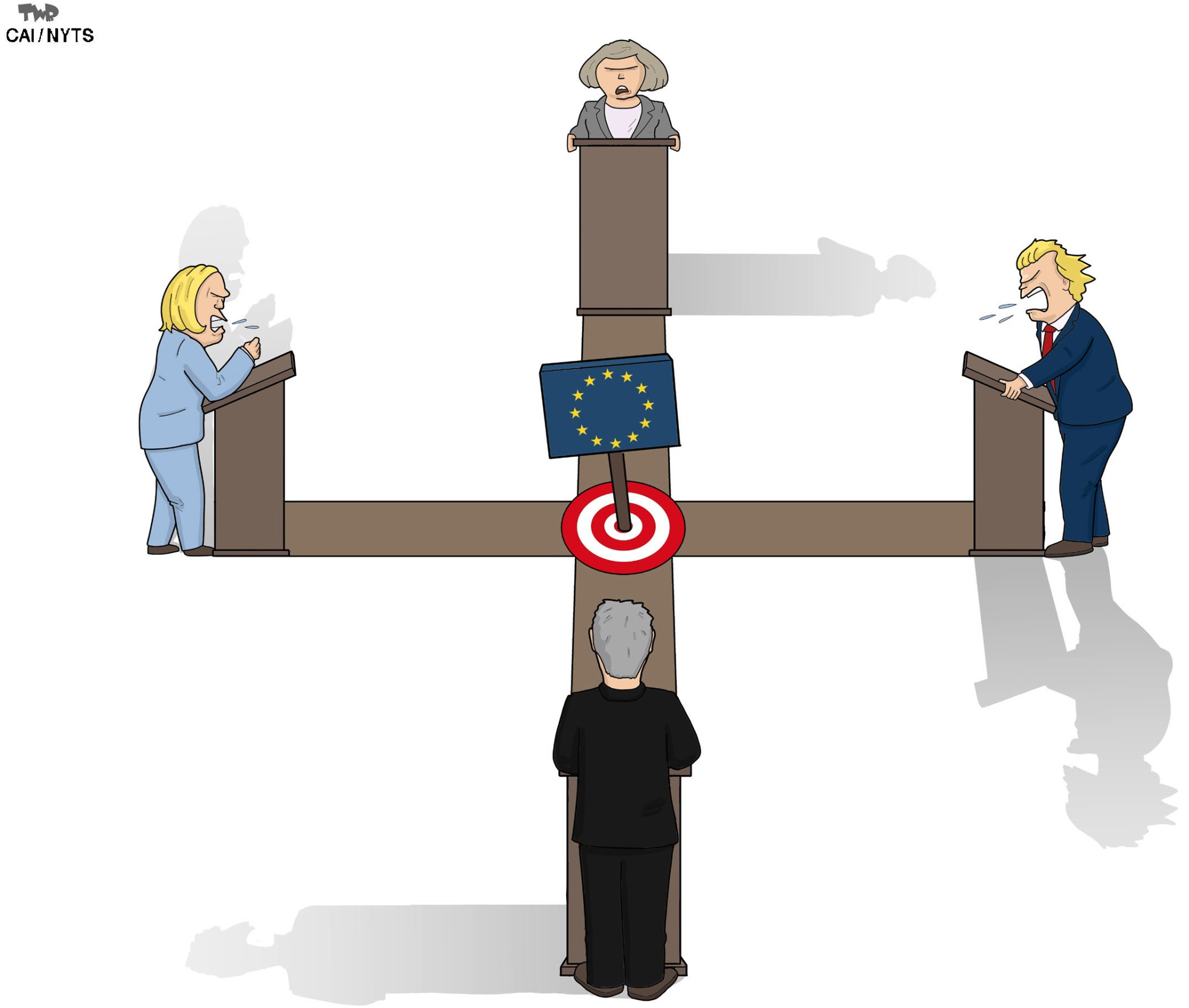The first round of the French election turned out much as expected: the centrist Emmanuel Macron finished first, with 24 percent of the vote, rather narrowly beating the right-wing National Front's Marine Le Pen, who won 21.3 percent. Barring a political accident of the type that befell the former front-runner, conservative Francois Fillon, Macron will almost certainly win the second-round runoff against Le Pen on May 7. The European Union seems safe — for now.
With the pro-EU Macron seemingly headed toward the Elysee Palace — the establishment candidates on the right and the left who lost in the first round have already endorsed him — the immediate threat to the EU and the eurozone seems to have subsided. But this is no time for complacency. Unless Europe addresses flaws in growth patterns and pursues urgent reforms, the longer-term risks to its survival will almost certainly continue to mount.
And, as has often been noted, the French election, like other key votes over the past year, represents a rejection of establishment political parties: The Republicans' Fillon came in third with about 20 percent of the vote, and the Socialist Party's Benoit Hamon finished fifth with less than 6.5 percent. Meanwhile, the left-wing euroskeptic Jean-Luc Melenchon won 19.5 percent, putting the total share of voters who chose candidates of nontraditional parties — Le Pen, Macron and Melenchon — at nearly 65 percent.



